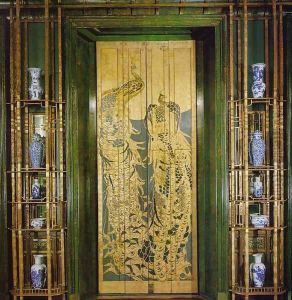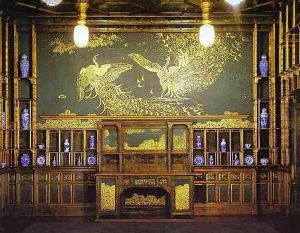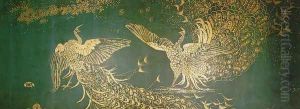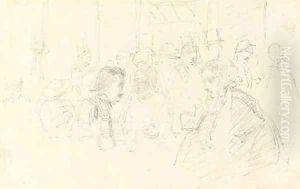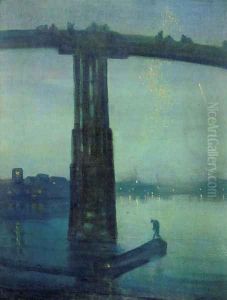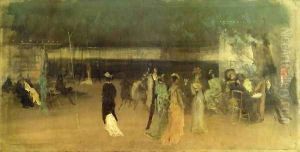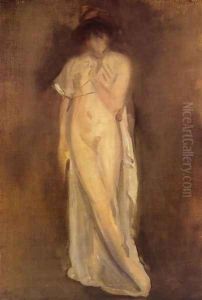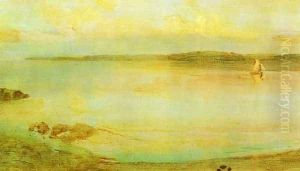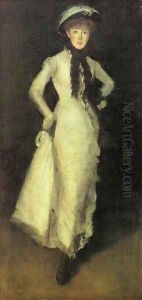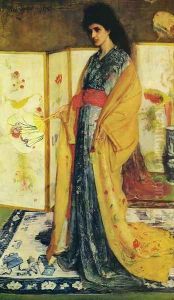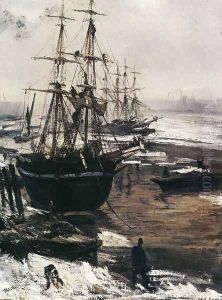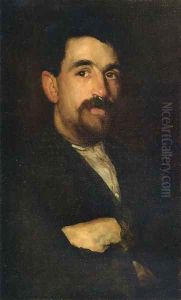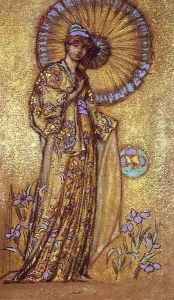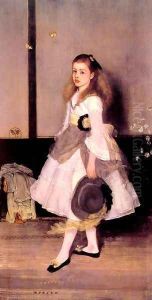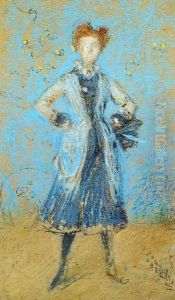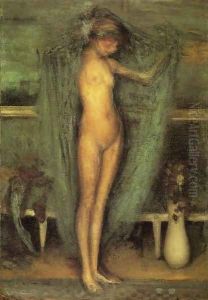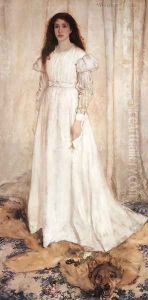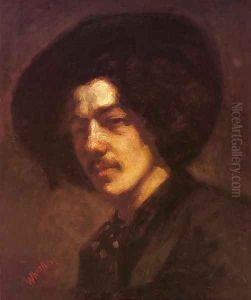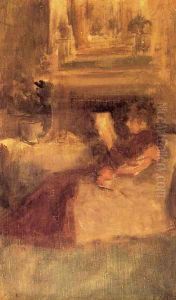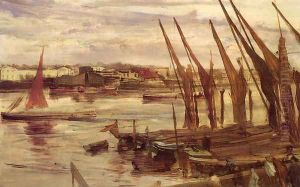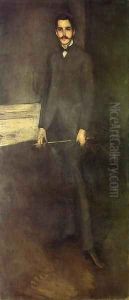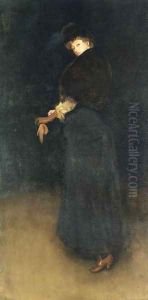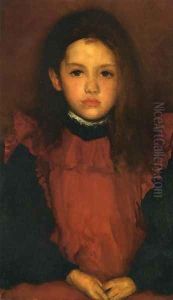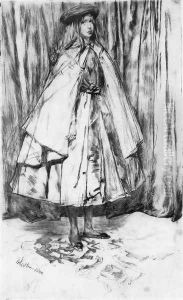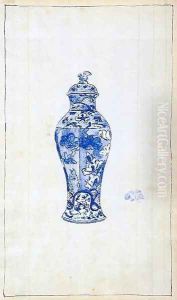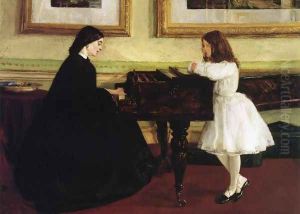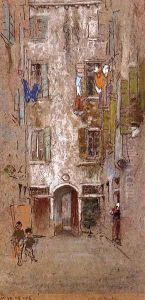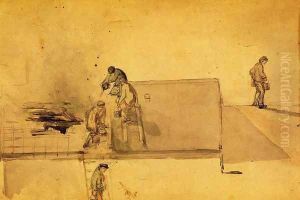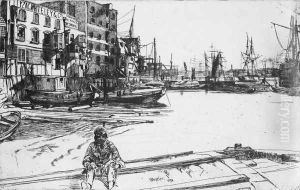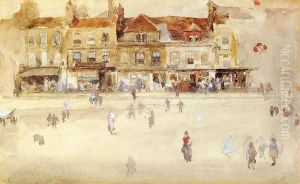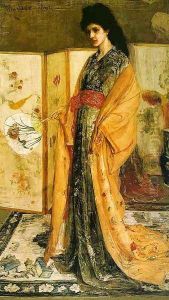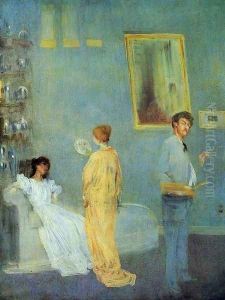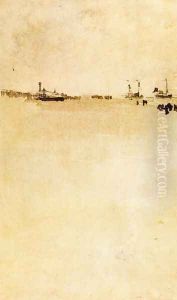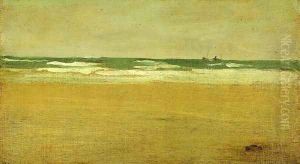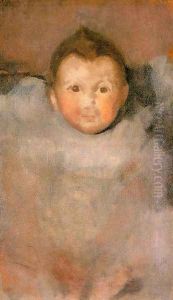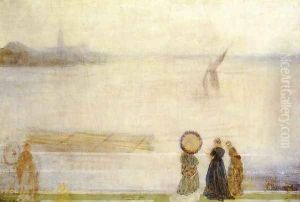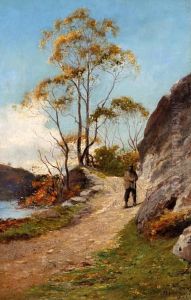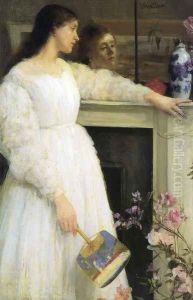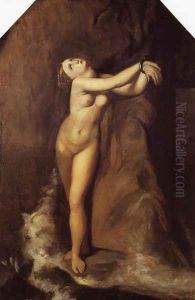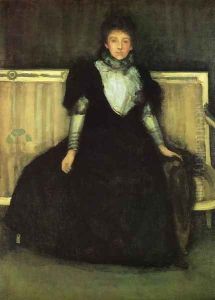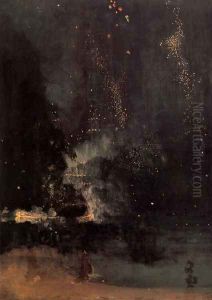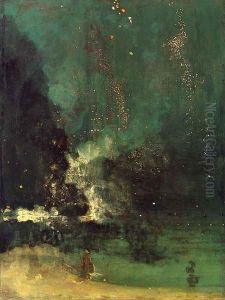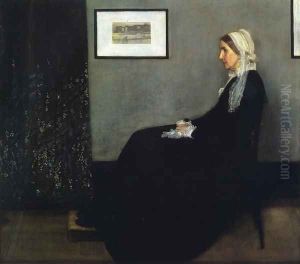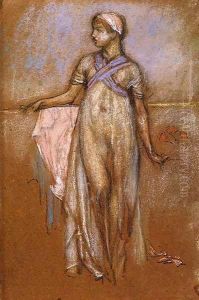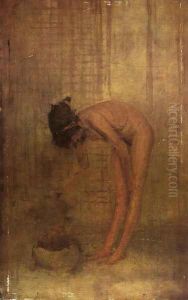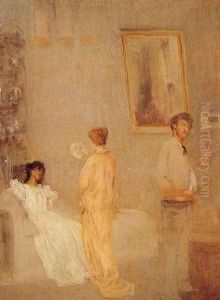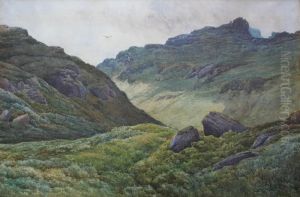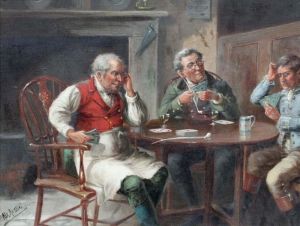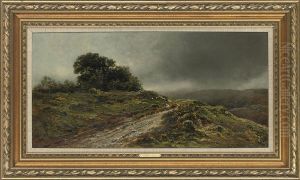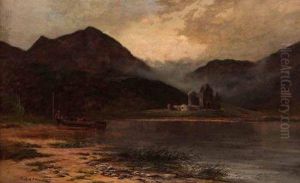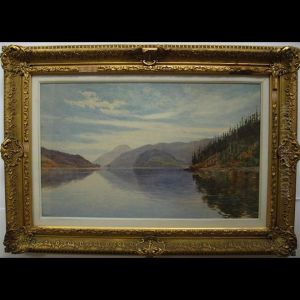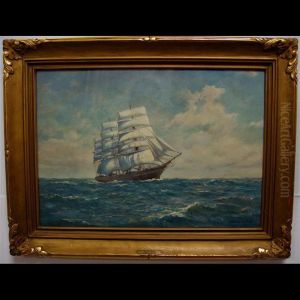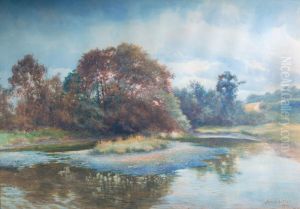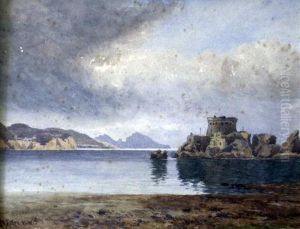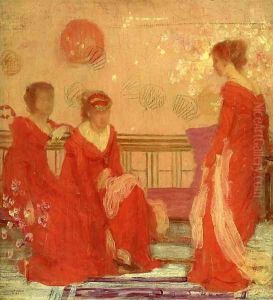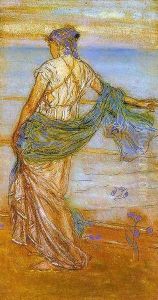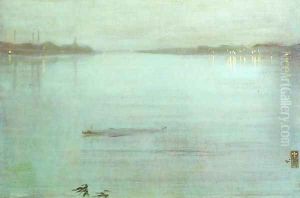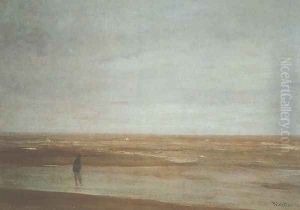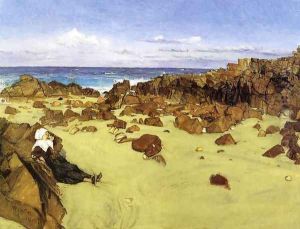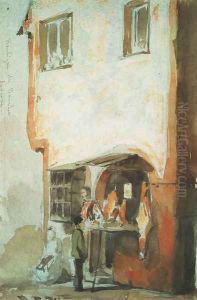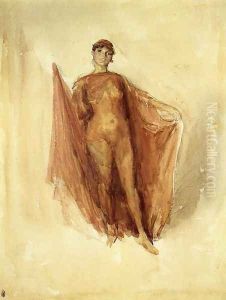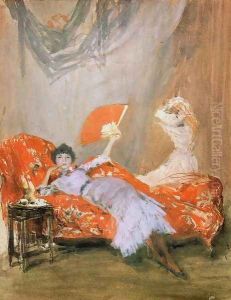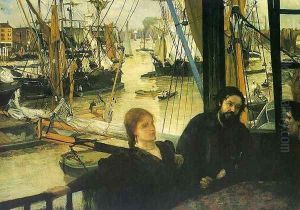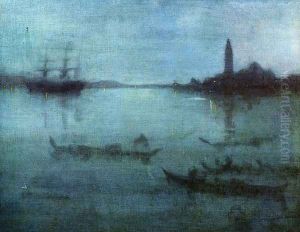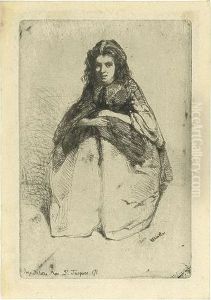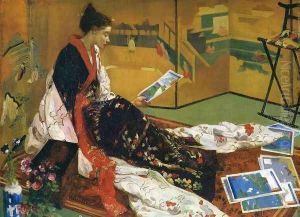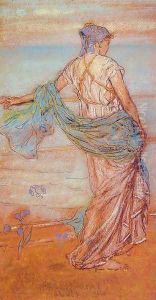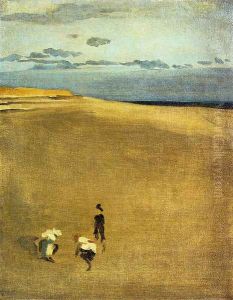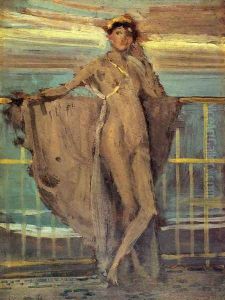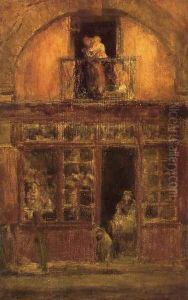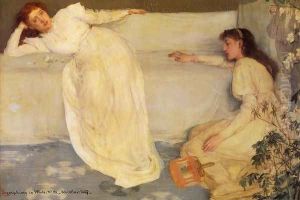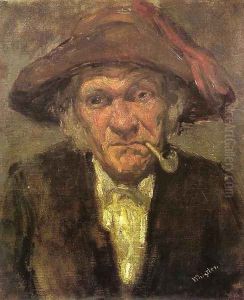James Abbott McNeill Whistler Paintings
James Abbott McNeill Whistler was an American artist, active during the 19th century, known for his innovative painting techniques and his bold artistic theories. He was born on July 11, 1834, in Lowell, Massachusetts, and spent much of his youth in Russia, where his father was a railroad engineer. This exposure to European art and culture at an early age had a profound impact on his artistic development.
Whistler moved to Paris in 1855 to study art and was influenced by the works of Gustave Courbet and the French Realists. His style, however, evolved into a more personal aesthetic that emphasized tonal harmonies and the beauty of art for art's sake, which was a departure from the narrative-driven works of his contemporaries. He was associated with the Aesthetic Movement, which advocated for the visual and sensual qualities of art apart from its narrative content or moral message.
In 1863, Whistler settled in London, which remained his base for most of his career. One of his most famous works, 'Arrangement in Grey and Black No.1', also known as 'Whistler's Mother', was created during this time and exemplifies his mature style. It combines his interest in form with a subdued palette and has since become an iconic image of American art.
Throughout his career, Whistler was a controversial figure, known for his sharp wit and flamboyant personality. He often found himself at odds with the art establishment and was involved in several public disputes, most notably with the critic John Ruskin. In 1878, Whistler sued Ruskin for libel after the critic disparaged his painting 'Nocturne in Black and Gold: The Falling Rocket', leading to a famous court case that Whistler won, though it left him financially ruined.
Whistler continued to paint and exhibit his works, and he also wrote extensively on art. His book 'The Gentle Art of Making Enemies' (1890) is a compilation of his letters, articles, and other writings, which articulate his views on art and aesthetics. He believed that the artist's responsibility was not to convey a moral or social message but to create beauty according to his own vision and standards.
James Abbott McNeill Whistler died in London on July 17, 1903. His legacy as an innovator in the art world continues to be celebrated, and his works are held in major museums and collections around the world. He influenced many artists, including the Impressionists, and his ideas about 'art for art's sake' resonated with subsequent generations of modern artists.
